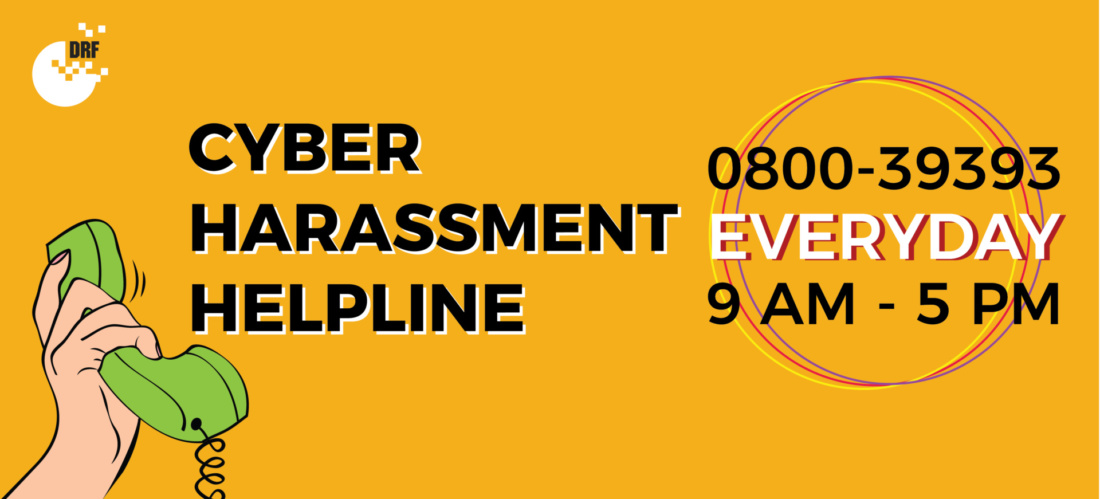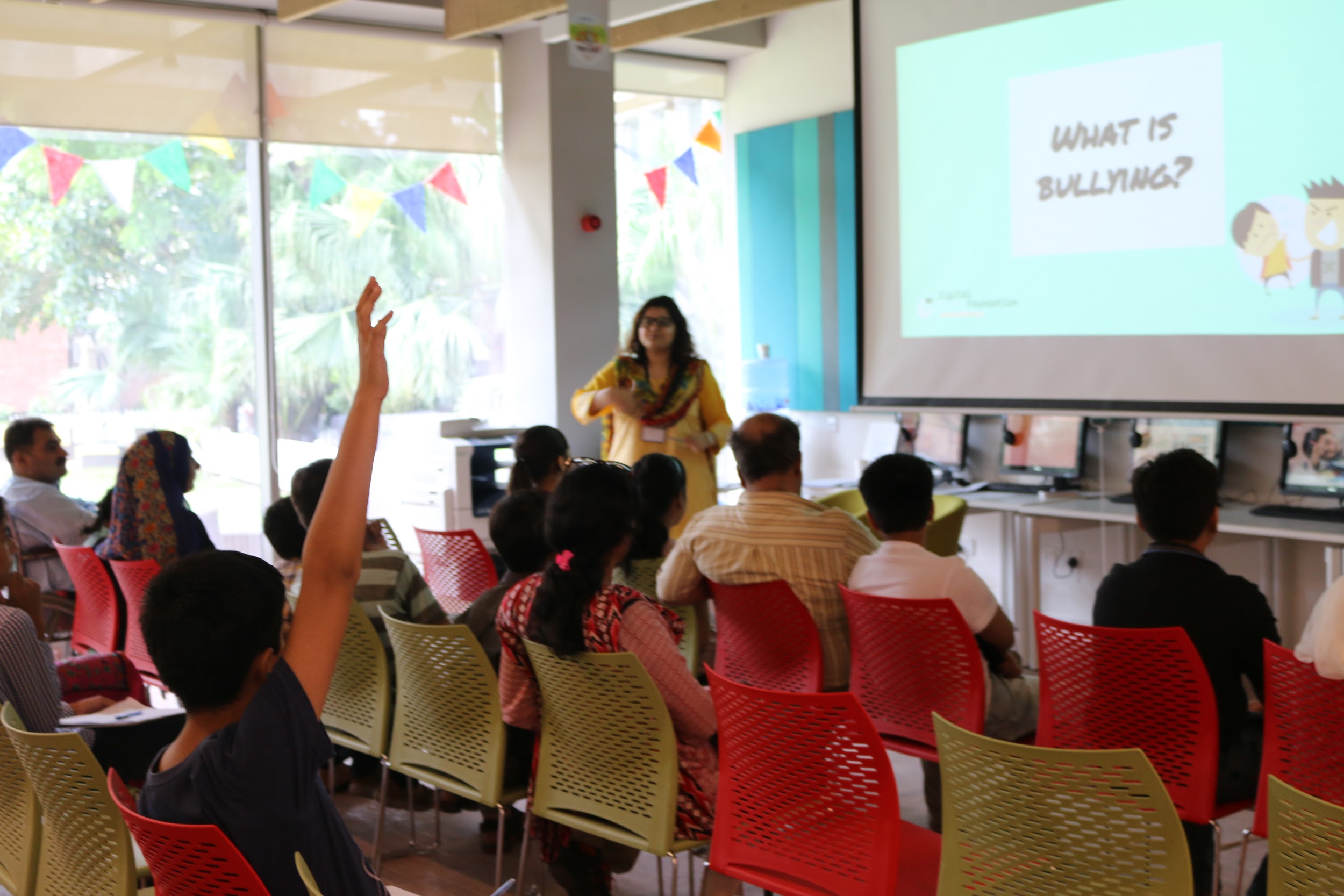DRF Launches 6-month Report on the Cyber Harassment Helpline
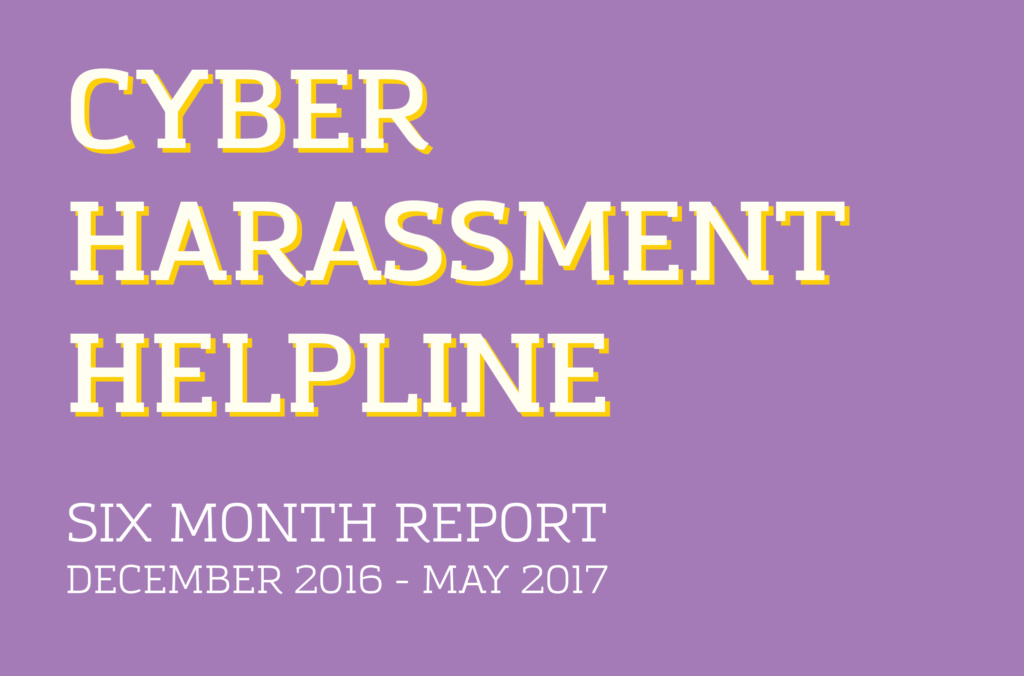
It is with great passion and hard work that the Cyber Harassment Helpline initiated by DRF reached the 6th month of its operation, and with it, came the release of its bi-annual report. The Cyber Harassment Helpline is the first of its kind in the region, and is run by a dedicated team to provide specialized digital, psychological, and legal help for cases of online harassment and violence. In the space of these 6 months, the Helpline has received 703 calls from all over the country. This time around, the report also included the psychological state of the callers, in an attempt to bring attention to the psychological trauma that online violence leaves on the victims and survivors of abuse. The report can be accessed here [PDF].
DRF Discusses Online Harassment and Surveillance from a Feminist Perspective at APrIGF 2017
-
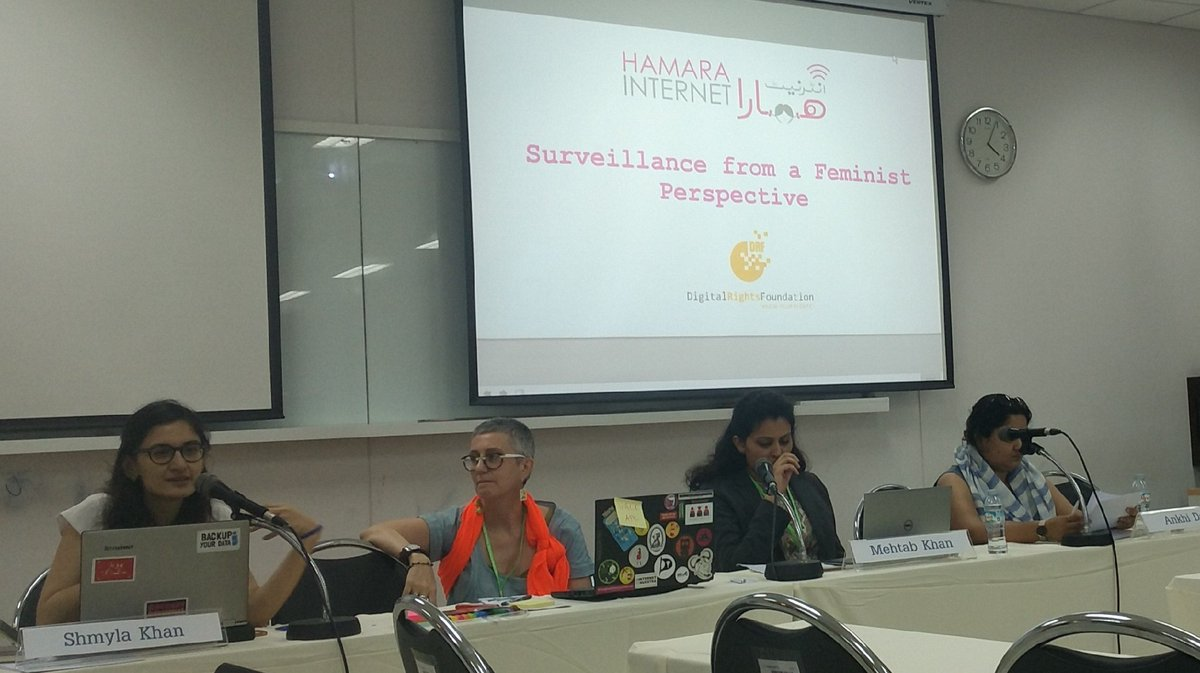
-
Shmyla Khan talks about Surveillance from a Feminist Perspective at APrIGF 2017
-
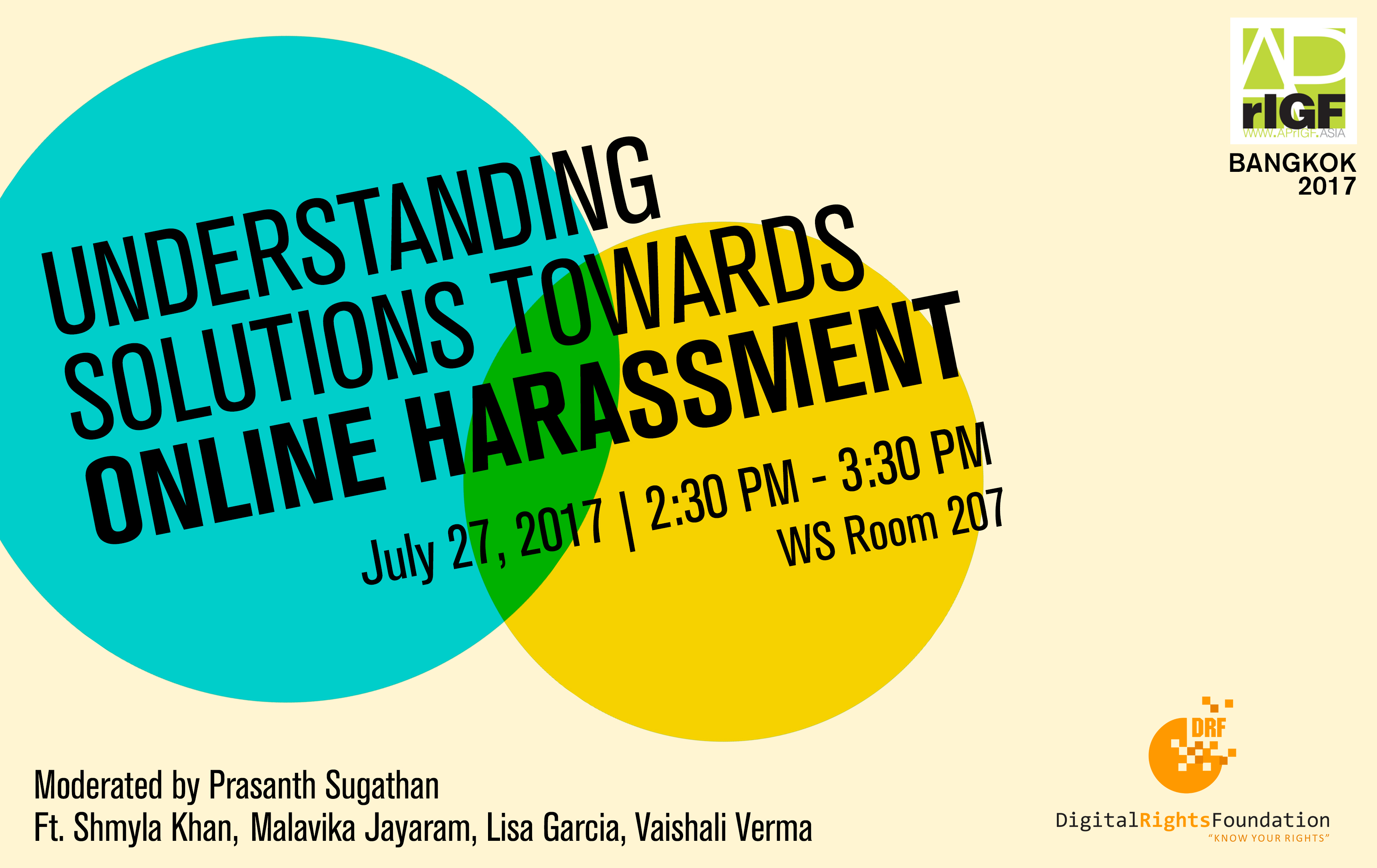
-
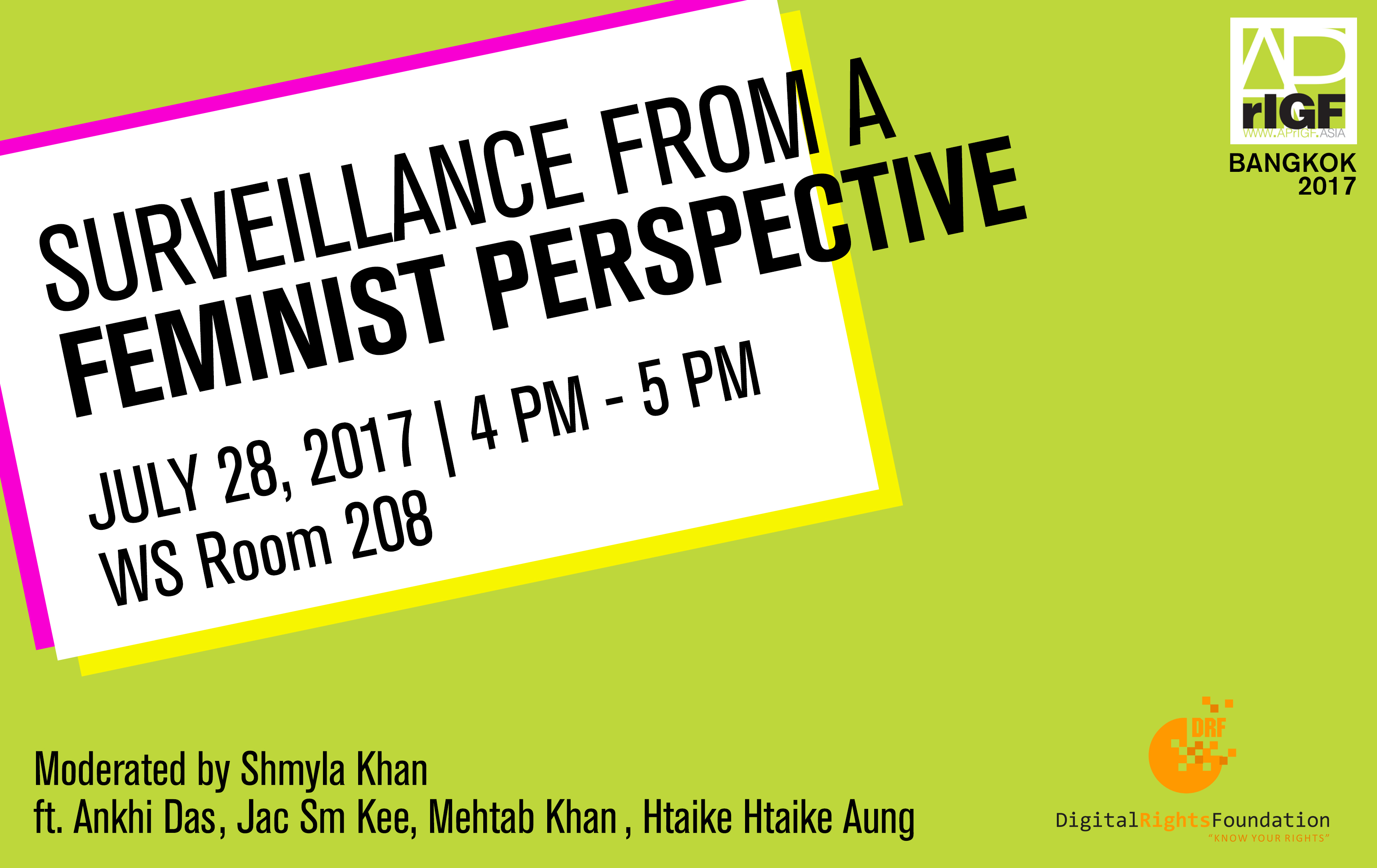
The APrIGF was held on 26-29 July 2017 at the Chulalongkorn University, Bangkok, Thailand. DRF organized two panels around the subjects of online harassment (“Understanding Solutions Towards Online Harassment” and a stream of the session can be accessed here) in collaboration from SFLC.in and gendered surveillance (“Surveillance from a Feminist Perspective” and a stream of the session can be accessed here). Shmyla Khan, a fellow at APrIGF, was also part of a panel “Hack to fight online violence”.
Open Government Partnership: Consultative Meeting on “Use of Technology for Openness and Accountability"
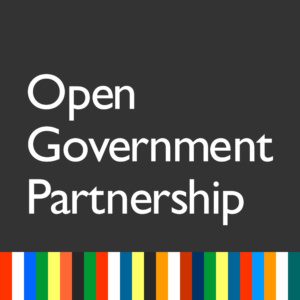
The Planning and IT Department of Pakistan called a consultation meeting on Pakistan’s National Action Plan for Open Government Partnership (OGP) on July 10, 2017. The meeting titled “Consultative meeting on ‘Use of Technology for Openness & Accountability’” focused on one of the OGP themes “Use of Digital”. The representatives of DRF discussed the commitments proposed by DRF, including open information and data protection. Adnan Chaudhri of DRF stated, “The main problem is a lack of direct data protection legislation on the books in Pakistan. As a result telecoms and other industries that utilise citizen data have not put more legal attention or focus on their own inconsistent consumer privacy policies. This is all the more glaring given that those telecoms that operated outside Pakistan will provide more comprehensive and detailed privacy policies depending on the territories they operate in, because of the laws.” DRF also emphasized that Citizen involvement requires that there be stronger data protection laws that spell out for citizens- in English, Urdu and other regional languages - what happens to their data etc.
Making All Voices Count: Learning Event in Islamabad
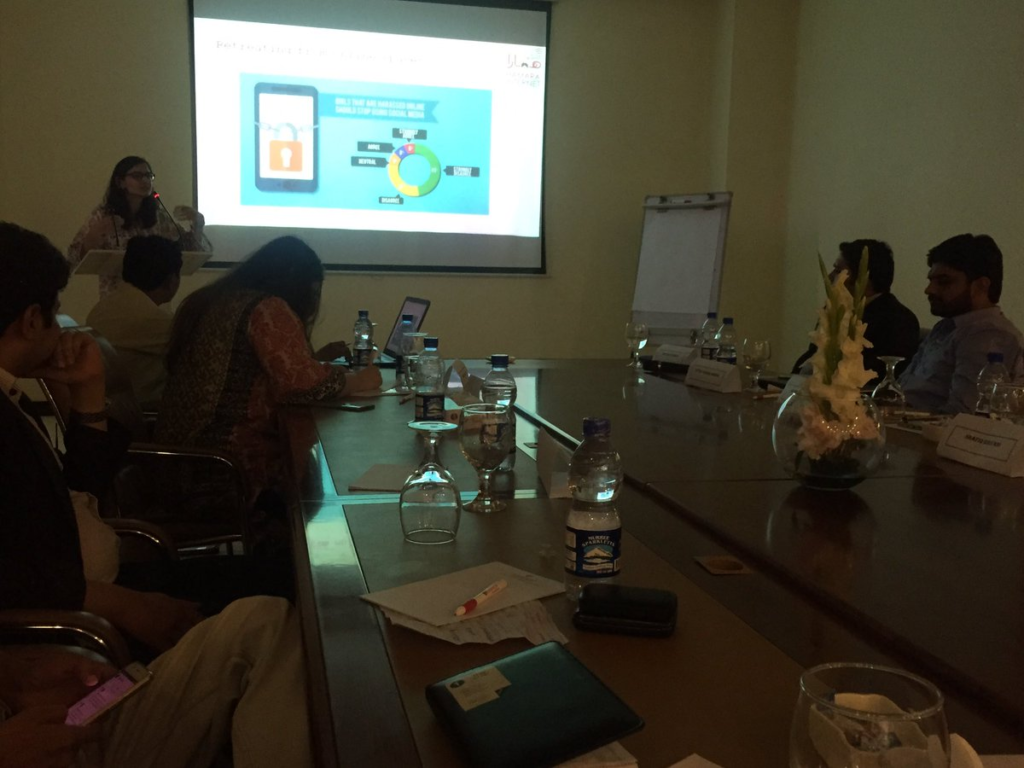
Accountability Lab hosted a learning event with Making All Voices Count: A Grand Challenge for Development grantees in Islamabad on July 10 and 11, 2017. Seerat Khan and Shmyla Khan from the DRF team represented the organization and shared their experiences of working on the Hamara Internet project. They also got a chance to present their findings at a public learning event attended by representatives from organizations such as DFID - UK Department for International Development, The Asia Foundation, the Hashoo Foundation and several others.
Aware Girls: Pak-Afghan Women Peace Exchange Program
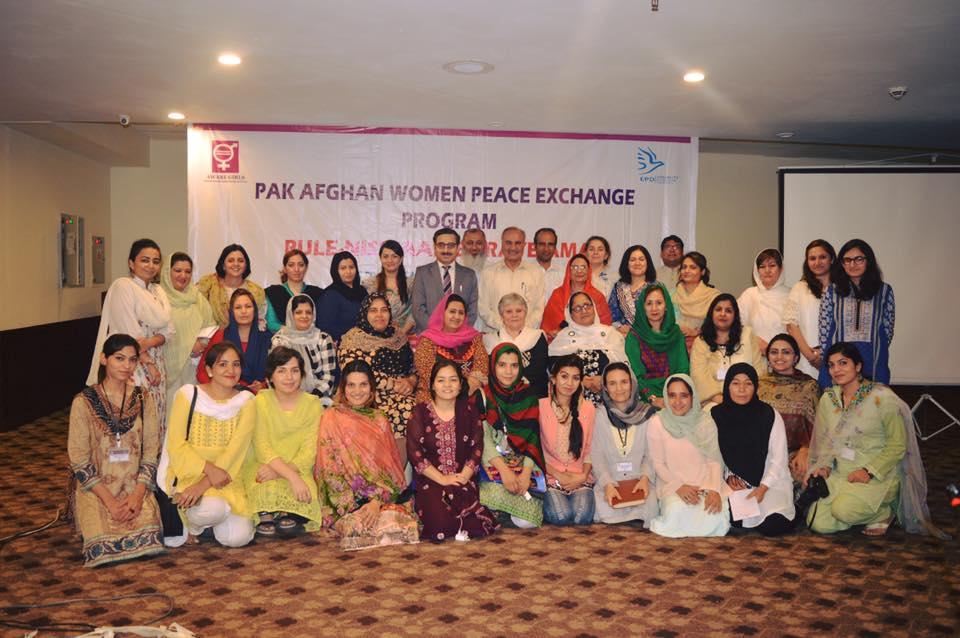
DRF presented its work in the field of gender and digital rights in Pakistan and its implications in the region al the Conference on July 18, 2017. The event was attended by prominent women’s rights activists and parliamentarians.
Cyberbullying workshop @ British Council Library
DRF conducted a session in Lahore on cyberbullying and child online safety titled “Anti-cyberbullying and digital awareness workshop” on July 16, 2017 at the British Council Library. The event was attended by children between the ages of 12 to 15 along with their parents.
2nd Dialogue Forum on Implementing Right to Information Acts- Promoting Data-Driven Journalism
DRF attended a meeting titled “2nd Dialogue Forum on Implementing Right to Information Acts- Promoting Data-Driven Journalism” called by GIZ (Deutsche Gesellschaft für Internationale Zusammenarbeit) to acquire feedback from the participants for further challenges, needs and recommendations regarding Right to Information Act. The meeting was held in Lahore on July 20th, 2017.
The Internet as a Forbidden Library: Pakistan’s Clampdown Against Data Freedom

"The most important aspect of any statutory legislation is its language and terminology, which expands or restricts the scope of its controlling provisions. The Cyber Crime Act 2016 is worded ambiguously enough so that it is entirely up to the discretion of an authorized offer to investigate, seize, prosecute and penalize an enumerated offender." Read the blog by Digital Rights Foundation here.
The Conviction of Taimore Raza and The Jurisprudential Insight It May Provide

"Pakistan has often lagged behind developed nations in matters of technology. It appears that it is also behind in matters of jurisprudence pertaining to technology related issues of law. The Constitution and laws of the country may be adequate to deal with new age issues, however, we will only be able to say that for sure after the Superior Judiciary grapples with several such issues and pronounces authoritative opinions on the matter. Till then, its best to err on the side of caution." Read the blog by Digital Rights Foundation here.
Why Pakistan Badly Needs A Data Protection Law

"A data protection law regulates, defines, limits and controls the type of data that can be stored, analyzed and processed by both public and private entities and the purposes and durations for which this information may be used. It acts as a safeguard against the misuse and mishandling of private data and provides citizens with a mode of accountability." Read the blog by Digital Rights Foundation here.
Female Lawmaker in Pakistan Accuses Imran Khan of ‘Inappropriate’ Texts. Abuse Follows.
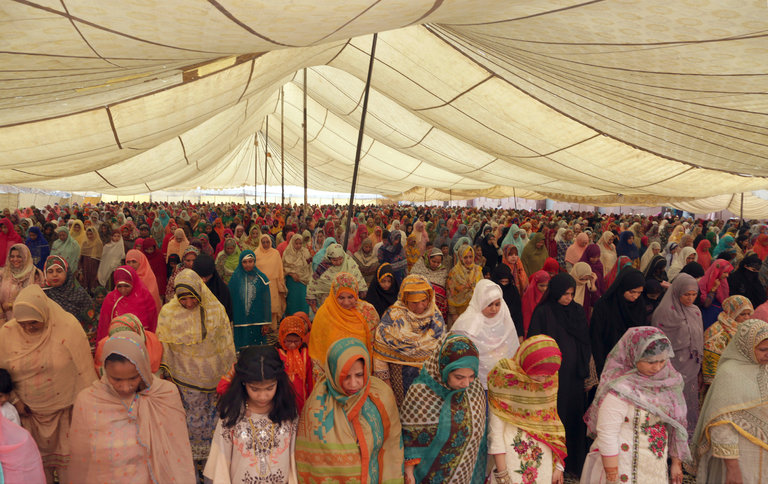
When a Pakistani lawmaker [Ayesha Gulalai] said this past week that she had received “inappropriate text messages” from a male colleague, she was met with a wave of vitriol on social media.
Nighat Dad, the executive director of the Digital Rights Foundation, a Pakistani internet advocacy group, said, “There is a culture of violence against women that already exists in the home, the workplace, in public places, and now it is increasingly manifesting itself in online spaces as well.”
Read the full article on The New York Times.
Ayesha Gulalai is paying the price for decrying harassment publicly
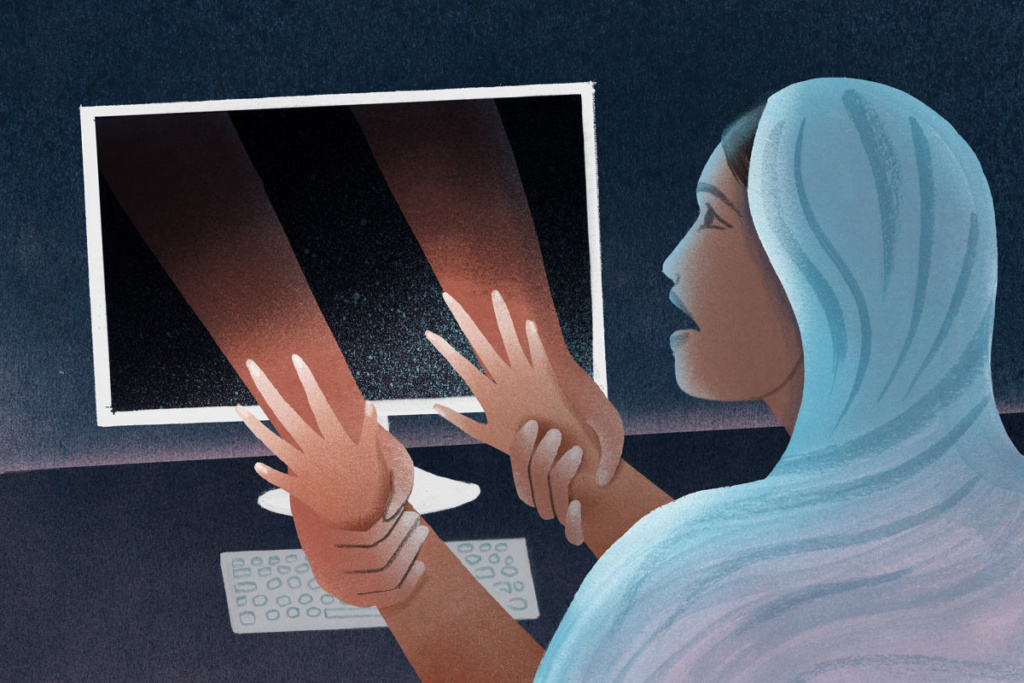
On August 1, Ayesha Gulalai - an MNA and now former member of Pakistan Tehreek-e-Insaf (PTI) - came forward with allegations of harassment against Imran Khan - Chairman PTI - and claimed that she had been receiving lewd messages and overtures from him since October 2013. Gulalai’s allegations were largely rejected by the public, leading to a backlash.
The inevitability of the backlash stems from the fact that in the majority of cases involving harassment, women are, more often than not, castigated whenever they speak up and hold a public figure accountable for his actions.
Read here how women who choose to break their silence against the harassment they face, are treated in Pakistan. A blog by Hija Kamran and Zoya Rehman of Digital Rights Foundation in Dawn.
'It's all sextortion and revenge porn': the woman fighting cyber abuse in Pakistan - The Guardian

After the killing of Qandeel Baloch last summer, Nighat Dad reached breaking point. Visiting colleges and universities across Pakistan, Dad had been building quite a reputation for herself and her work. She was spreading the word about the Digital Rights Foundation she established in 2012 to help Pakistani women deal with the new phenomenon of online harassment. Read the article by The Guardian.

